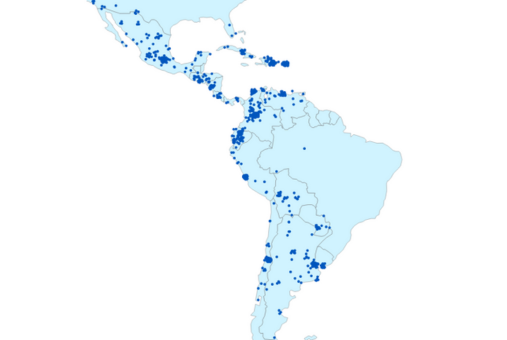
Gatopardo rethinks its print and digital products so its winning long-form, visual journalism can continue to make an impact on the region.

A study of 40 media outlets in Latin America found they received more than $27 million from just two foundations between just 2016 and 2022.

More digital native media outlets in Latin America ceased publishing in the past year than in any other year since 2015, according to SembraMedia. The number of new outlets in the region has also decreased. A decline in funding and political instability are some of the reasons for this situation, the study states.

Five philanthropic foundations have already committed to donating US$2 million for the first two years of operation of a new fund to support public interest journalism in Brazil. LJR spoke to the consultants responsible for the fund, which aims to provide “more and better funding” to Brazilian journalistic initiatives.

Venezuelan journalists and photojournalists do other jobs outside of journalism to have extra income that allows them to survive. In 20 years of the governments of Hugo Chávez and Nicolás Maduro, 400 media outlets have closed.

Five journalism leaders gathered at the 25th International Symposium of Online Journal (ISOJ) in Austin on April 12 to discuss how government policies regarding copyright, social media regulation, and subsidies could affect the future journalism landscape. Though all the panelists emphasized the power of public policy to revitalize and protect a robust ecosystem of journalism […]

The opening panel of the 25th ISOJ showcased how the Press Forward initiative is building a coalition of donors in the United States to support local journalism nationwide, with the goal of distributing $500 million in resources over the next five years.

After twelve years of investigating official advertising in Colombia, the Foundation for Press Freedom (FLIP) said that this public resource is used mainly by public administrations to censor the media and influence their editorial line, as well as for leaders to promote themselves as public figures.

Both large and small media outlets in Latin America have joined the wave of vertical video – the format made for mobile – through YouTube Shorts. LatAm Journalism Review interviews representatives from three Latin American media to learn about the benefits of this format.

When media no longer have a monopoly on advertising, sales executives and their client portfolios no longer have what a media outlet needs to be sustainable. So, how do digital media outlets approach creating their revenue streams? Who develops and executes plans? How do these new roles work?

News coverage of climate and biodiversity does not reflect the magnitude of the crisis facing humanity, according to a survey of journalists. According to them, the public is interested, but a lack of resources and editorial lines make it difficult to pay attention to the issue. Incorporating technology into newsrooms could alleviate problems.

Although there is still a certain "taboo" when talking about money, journalists need to delve into issues related to financing news media to ensure their sustainability. This is a process that goes far beyond fundraising, said experts on a panel at the 3i 2023 Festival, which took place May 5-7 in Rio de Janeiro.